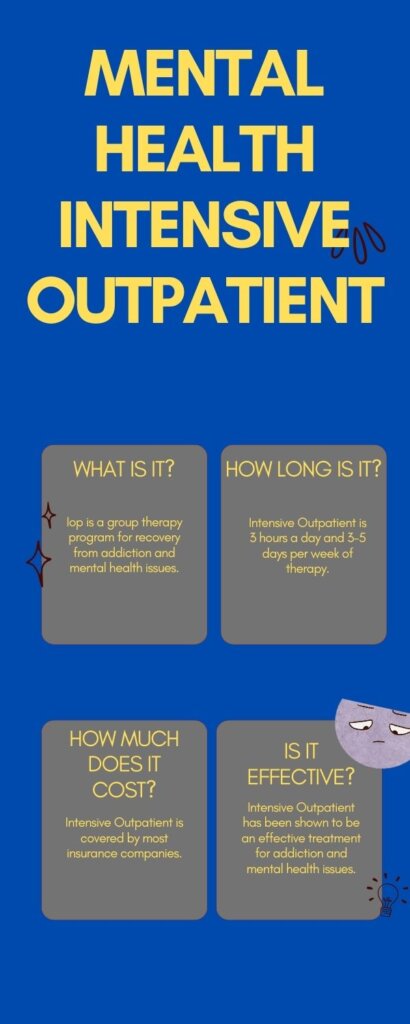Hey, we all want success in our lives; to be able to take vacations and world tours; enjoy meals daily at our favorite restaurants; buy everything that we want to, and then some.
And then there are those who find joy in the hustle of working hard. For them, their lives are made up of wins from crushing goals – building up skills, outsmarting tough situations, and making some “dough” along the way.
But for both the types of people, it’s not uncommon to get lost in the struggles of work. The approaching deadlines, the stress of work, suffering burnouts, and anxiety of facing unknown situations every hour every minute of the day.
All these signs point towards a deteriorating mental health. And we haven’t even gotten into the harsher challenges of PTSD, schizophrenia, bipolar disorder, and others…
But worry not! We are here with the guide to help you find transformative mental health support in the stunning landscapes of southeastern Massachusetts.
Understanding Your Options
In this guide, we will help you understand your mental health support options – from traditional therapies to outpatient programs – so you can find the best effective treatment for you and be a part of a better healthier Massachusetts – only 38% of adults with mental illness in Massachusetts are able to find appropriate level of care that they need.
When facing mental health struggles, it’s without a doubt most important to find the right level of care because:
- You will not only get better faster but also maintain your recovery, indefinitely.
- Get the most out of your hard-earned bucks while spending very little.
- Naturally stick with your treatment and see the entire course all the way through to the end.
So, without any further ado, here are the 3 types of mental health treatment options available in southeastern Massachusetts, their expected costs and durations, and their suitability for various mental health symptoms.
Traditional Therapy
Traditional therapies, as the name suggests, have been around for some while and have a lot of historical context. So much so, that they have become one of the first sought therapies if someone encounters a mental health challenge.
And thanks to their long history, there’s plenty of evidence to support the efficacy of these treatment methods; hence, they are also known as evidence-based treatment methods.
These therapies include psychoanalytic therapy, CBT, psychodynamic therapy, group therapy, and more.
You should get traditional therapy if:
- If you’re encountering symptoms – such as anxiety, depression, or relationship issues – that are impacting your daily life.
- If you are going through major life changes – such as divorce, job loss, or parenthood – and can benefit from the support or guidance of a therapist.
- If you are coping with difficult experiences – such as trauma, abuse, or chronic illness – that can be processed effectively with the help of therapy.
Durations And Costs
The average costs and duration depend on the type of treatment, sessions, location, expertise, and a variety of factors. For example, psychotherapy in the U.S. costs $100 to $200 per session, says this 2019 report from SimplePractice.
Here’s a rough estimate of the expected costs and duration of a few typical scenarios in mental health facilities in southeastern Massachusetts:
- Short-term CBT for mild-moderate anxiety: 8-12 sessions at $150-$200 per session costing a total of $1200-$2400.
- Individual therapy for moderate depression: continues for about 6 months with around 24 sessions at approximately $180 per session, total cost ~ $4,320
- Long-term therapy for complex trauma: it is an ongoing therapy with variable sessions, frequencies, and costs.
Holistic Therapies
Traditional therapies often follow a specific structure, for example, the weekly individual sessions with a therapist. They are not as flexible and only utilize treatments for a targeted mental health challenge.
However, our healing process goes beyond than just a single targeted issue. For a long-term and true healing, our minds, body, and spirit require an all-inclusive approach.
This is where the holistic approaches to treatment come in. These are treatment methodologies delivered as a complement to traditional therapies; yet they are just as important (if not more) for a well-rounded holistic improvement.
Besides, most of these holistic therapies are what every person should practice in their daily lives to have happy, healthy, and productive lives.
Types of Holistic Therapies include:
Mind-Body Therapies:
These focus on bringing the mind and the body on the same page and influencing one’s positivity onto the other. Examples include mindfulness meditation, yoga, and movement therapies.
Body-Based Techniques:
These focus on the body to improve physical well-being, and by extension (via feel-good hormones released during exercise, for example), emotional health. Examples include massage therapy, acupuncture, and chiropractic care.
Alternative Medicine:
We can’t always rely on medicines for healing – that just builds resistance to treatments and might have mild side-effects. Nutrition and herbal medicine improve overall physical health and with animal-assisted therapy, you can build connections with your pet partners for mood boost and stress release.
Duration and Costs
Again, the holistic therapies vary depending on your needs, instructor’s experience, frequency, and duration of the session, but here’s a rough estimate about a few of these therapies for you:
- Mind-Body Therapies: They range from $50-$150 per session – yoga classes are generally more affordable than longer-duration workshops.
- Bodywork Therapies: A 1-hour session of acupuncture costs $75-$150 while massages can cost about $50-$200 per session.
- Alternative Medicine: Herbal consultations might cost $75-$150, aromatherapy sessions $50-$100, and nutritional therapy varies depending on length and complexity.
Telehealth Therapies
Now that you know both powerhouse types of mental health therapies in southeastern Massachusetts, you would want to know the treatment approaches that are effortless to stick to.
You see, although the previous two therapy types are super effective, they do demand some serious bit of motivation to practice… sometimes, every single day.
So, the idea is to cut back on the effort required to receive therapy to make it just a little easier to complete them. That way, you can naturally stick with your improvement routine and see it all the way through to the program’s conclusion.
Telehealth Therapies offer a virtualized form of treatment to offer numerous benefits such as:
You should seek Telehealth Therapies if:
- You want to eliminate geographic limitations on accessing therapy and cut back on transportation challenges.
- You want to fit therapy sessions around your busy personal life and schedule appointments at any time of the day according to your convenience.
- Receive cost-effective treatment by eliminating overhead costs such as transportation, or the costs associated with building rents.
- You want greater consistency in adherence to the therapy schedule, which leads to faster progress, thanks to convenient scheduling and reduced barriers.
Duration and Costs
As you can receive telehealth therapy from the comfort of your home and you don’t have to travel to receive treatment, you can expect significant savings, in terms of both – time and money.
According to a study by Health Affairs, telehealth therapy costs an average of $79 per session as compared to $146 for in-person visits. Now, there’s always some prep time associated with preparing equipment for receiving treatment. Considering that, telehealth therapies save an average of 51 minutes on travel time, whereas, total time per visit is somewhere around 88 minutes!
And of course, you can continue to receive virtual therapy for as long as you need or as required by the type of traditional or holistic therapy that you’re in the middle of.
Wrapping It Up
In this article, we have covered the 3 most popular types of therapy options for mental health support in southeastern Massachusetts. You can receive these treatments via various programs that include inpatient, partial hospitalization, intensive outpatient, and outpatient programs.
Knowing the right type of treatment is one of the first and the most important steps in receiving the most effective treatment that makes it easier to stick with and achieve faster progress.
We are hoping this guide will help you find the right form of treatment, or at least nudge you in the right direction. If that happens for you, we are glad we could help; and if you need even a little bit of further assistance, please don’t hesitate to let us know.
We are here to help you find the right type of most valuable treatment for you – call 888.557.1552 or contact us online – we are looking forward to hearing from you.



